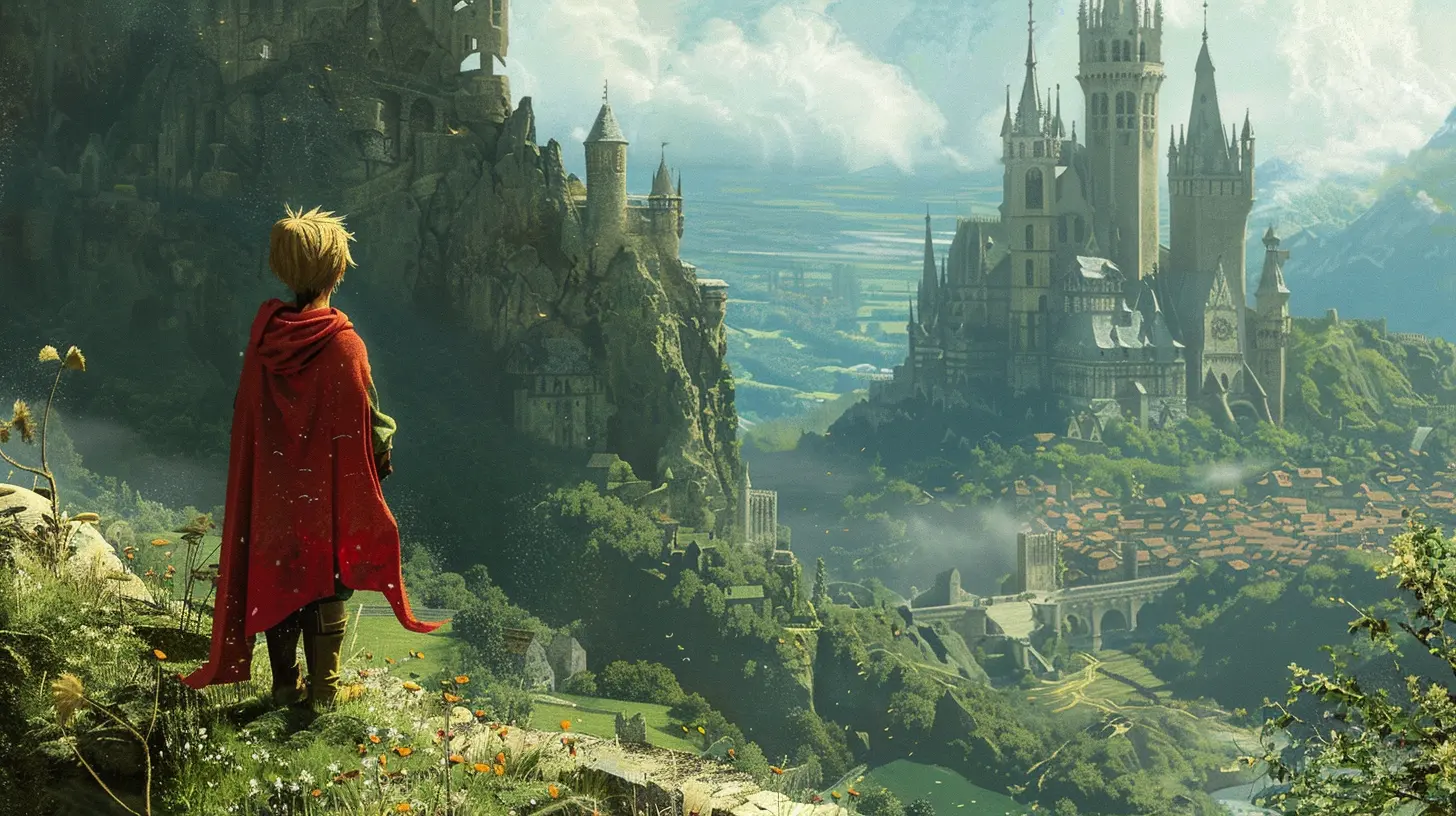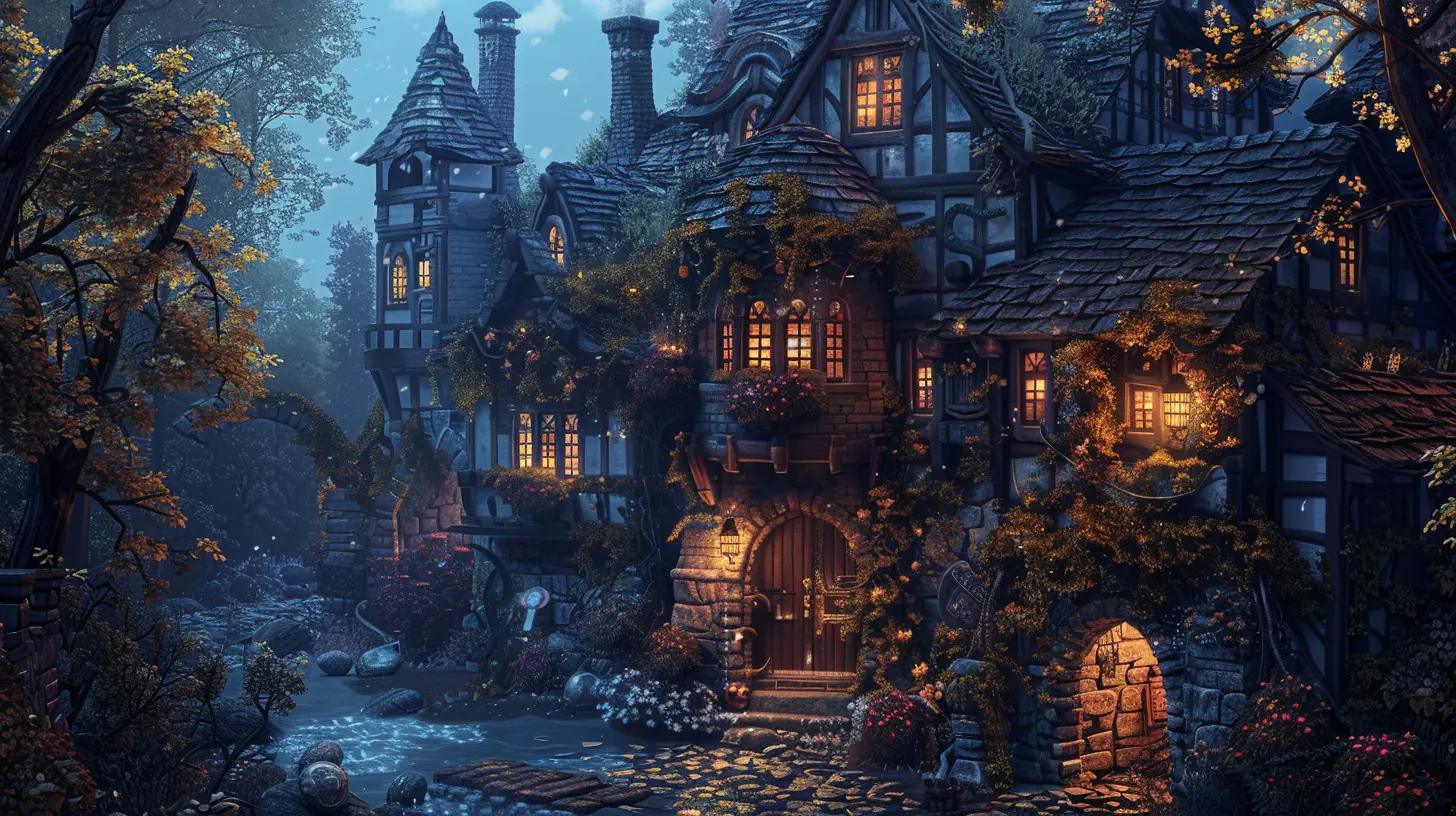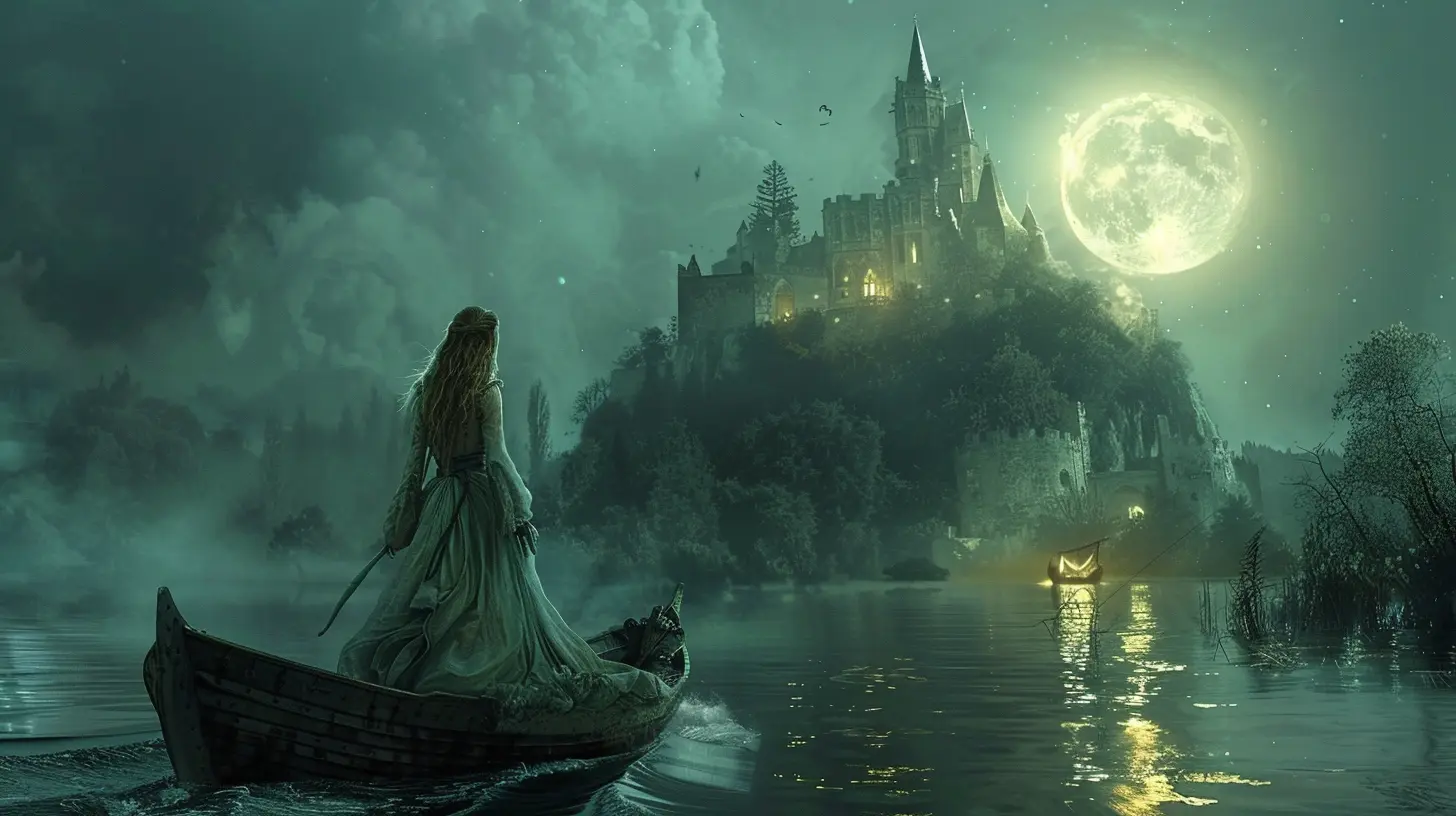From Page to Play: Translating Classic Tales into Interactive Stories
25 August 2025
Remember the thrill of flipping through the pages of your favorite storybook, holding your breath as Little Red Riding Hood cautiously approached her grandma’s house, or cheering as Odysseus outwitted Poseidon with clever tricks? Now imagine being part of that adventure—making the decisions, shaping the plot, even changing the ending. That’s the magic happening right now in the world of gaming. Classic tales aren’t just for bedtime anymore; they’re evolving, morphing, and bursting to life as interactive stories.
In this post, we’re diving deep into how developers are taking age-old stories off the bookshelf and turning them into thrilling, player-driven experiences. We’re talking about more than just book-to-game adaptations—we’re exploring the art of storytelling when the reader becomes the hero.

Why Classic Tales Still Hit Home
So, why turn to classic tales in the first place? Isn’t the gaming world full of sci-fi spaceships, zombie apocalypses, and hyper-realistic city simulations?Yep, it sure is. But classic literature has one thing all those modern stories crave—staying power.
Think about it. Stories like "Alice’s Adventures in Wonderland," "Frankenstein," or "The Odyssey" have survived centuries, cultures, and countless interpretations. There’s a reason they still get taught in schools and reimagined in Hollywood blockbusters. These stories tackle emotions and experiences we still wrestle with today—identity, adventure, fear, power, love, and revenge.
When game developers choose a classic tale, they’re tapping into a deep well of narrative gold—characters, plot lines, and world-building that players already feel connected to. That emotional investment makes engagement much more powerful.

The Shift: From Linear to Interactive
Books are linear. You start at page one and follow a path until the end, maybe stopping for a cup of tea along the way. Games? Not so much.Interactive storytelling lets players step into the story itself and bend its arc. In essence, it puts the narrative on wheels and gives you the steering wheel.
So what happens when you throw a linear classic into a dynamic game engine? You get something completely new.
Take "The Witcher" series for instance. Though based on Polish novels by Andrzej Sapkowski, the games expanded on the lore, characters, and world, letting you role-play as Geralt with dozens of story outcomes based on your choices. It’s no longer just about reading what a character does—it’s about being that character and shaping their path.

Not Just Retelling—Reimagining
The most successful adaptations don’t just retell—they reimagine.Think of it like remixing a classic song. The melody stays familiar, but the beat, rhythm, and vibe are totally fresh.
Let’s look at a few examples:
1. The Wolf Among Us (Based on Fables Comics)
You know the fairy tales: Snow White, Big Bad Wolf, Cinderella. But what if they were living undercover in a gritty 1980s New York? That’s the premise of The Wolf Among Us, where fairy tale characters are now flawed citizens dealing with crime, corruption, and existential dread.Instead of a whimsical retelling, the game mashes up noir storytelling with fantasy roots, letting players investigate murder mysteries while shaping how brutal or merciful their character becomes.
2. 80 Days (Inspired by Around the World in 80 Days)
This game takes Jules Verne’s classic novel and flips the script—literally. In 80 Days, you play as Passepartout, managing time, money, and relationships as you race around the globe. The decisions you make alter who you meet, which cities you explore, and whether or not you actually make it back in time.It’s a masterclass in branching narratives, all while maintaining the charm of the original story’s steampunk flair.
3. Alice: Madness Returns
Lewis Carroll’s Wonderland? Try again. This dark, twisted reimagining of Alice’s Adventures in Wonderland dives deep into psychological horror. Alice grapples with trauma and mental health, using a combat-heavy action campaign to navigate a shattered mindscape.It’s Wonderland, but not as you know it. And that’s the point.

The Tech Behind The Magic
Let’s geek out for a second. All this magic doesn’t just happen. Translating books into interactive games takes a mix of tech and storytelling finesse.Here’s what fuels it:
Branching Dialogue Systems
These allow players to have conversations with outcomes that influence the story. Every “yes,” “no,” or snarky comment can lead down a different narrative path.World-Building Engines
Engines like Unreal and Unity give developers the tools to render immersive worlds based on classic locations—think Dracula’s castle, the Greek Isles, or Victorian London in jaw-dropping detail.AI and Procedural Storytelling
Cutting-edge tools are helping create dynamic stories that respond to player behavior. Imagine a game that adapts the plot based on how aggressively you play or which characters you favor. That’s the future of narrative.Challenges of Adapting Classic Tales
This isn’t always a walk in the pixel park. There are some real challenges when you try to gamify a beloved book:Sticking Too Close to the Source
Being faithful can backfire. Sometimes readers expect the game to unfold just like the book—which leaves little room for creative freedom or player agency. And let’s face it, word-for-word adaptations can be... well, boring in a game setting.Cultural & Temporal Translation
A story written in the 1800s might have outdated norms and language. Game devs have to tread carefully when modernizing without losing the essence.Narrative Bloat
Books can have hundreds of pages and subplots. Streamlining them into a 10–20-hour game is like compressing War and Peace into a TikTok. It takes skill to trim the fat while keeping the flavor.
Why These Games Matter
You might be wondering—why not just play something new?Here’s the thing: classics are the bedrock of storytelling. They give us archetypes, moral dilemmas, and timeless conflicts. By turning them into playable experiences, we’re not just “reviving” them. We’re keeping them alive in a way that’s relevant for new generations.
And let’s be honest—reading Shakespeare might be a chore in high school, but playing through a Hamlet-inspired murder mystery where you actually decide who lives or dies? Now that’s engaging.
What's the Future of Interactive Classics?
We’re just scratching the surface. Here’s what might be next:- VR storytelling: Imagine stepping into a fully immersive version of Moby Dick and climbing aboard the Pequod in 360°.
- AI-customized plots: Think dynamic narratives that change completely based on your unique play style.
- Multi-player story games: You and friends could each take on classic characters and influence the story together.
- Educational adaptations: Games that teach literature by letting students experience Macbeth’s downfall or stand trial as Jean Valjean in Les Misérables.
Basically, the blend of literary tradition and interactive tech is opening doors we never even knew existed.
Final Thoughts: Reading vs. Playing—Do We Have to Choose?
Nope. Not at all.In fact, interactive storytelling doesn't replace books—it complements them. It’s like turning a black-and-white sketch into a full-color, animated masterpiece. You still appreciate the original work, but now you get to touch, shape, and be part of it.
So, next time you pick up a controller or load a game inspired by Shakespeare, Shelley, or Homer, take a second to realize—you’re not just playing a game. You’re walking through a living, breathing piece of literature.
And maybe, just maybe, that will be the spark that sends someone back to the library.
all images in this post were generated using AI tools
Category:
Interactive StorytellingAuthor:

Lucy Ross
Discussion
rate this article
1 comments
Knox McTavish
This article beautifully captures the magic of transforming beloved stories into interactive experiences. It's amazing to see how classic tales can resonate in new ways, inviting players to immerse themselves deeply. Thank you for exploring this creative journey and the emotions it evokes!
August 31, 2025 at 4:47 PM


